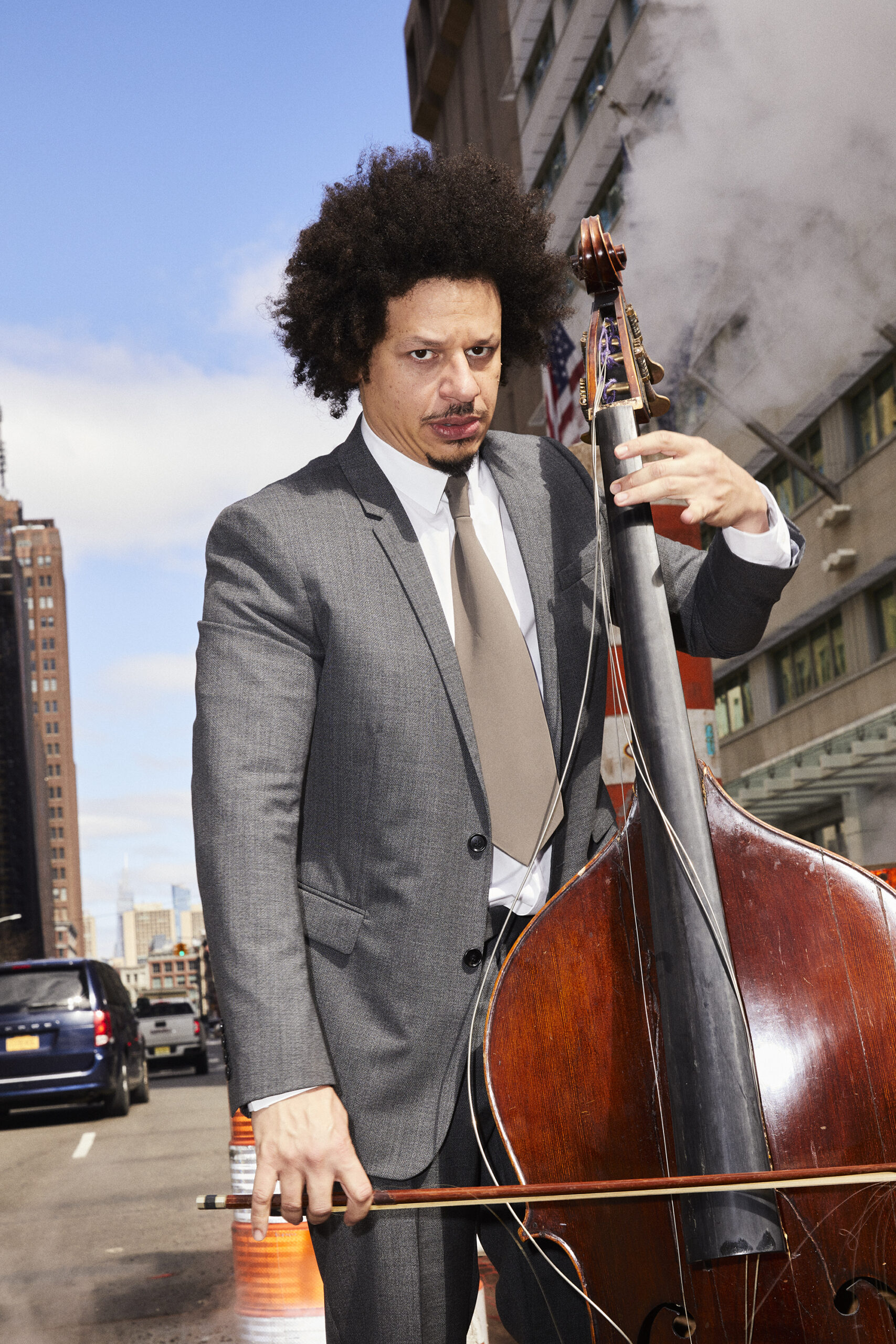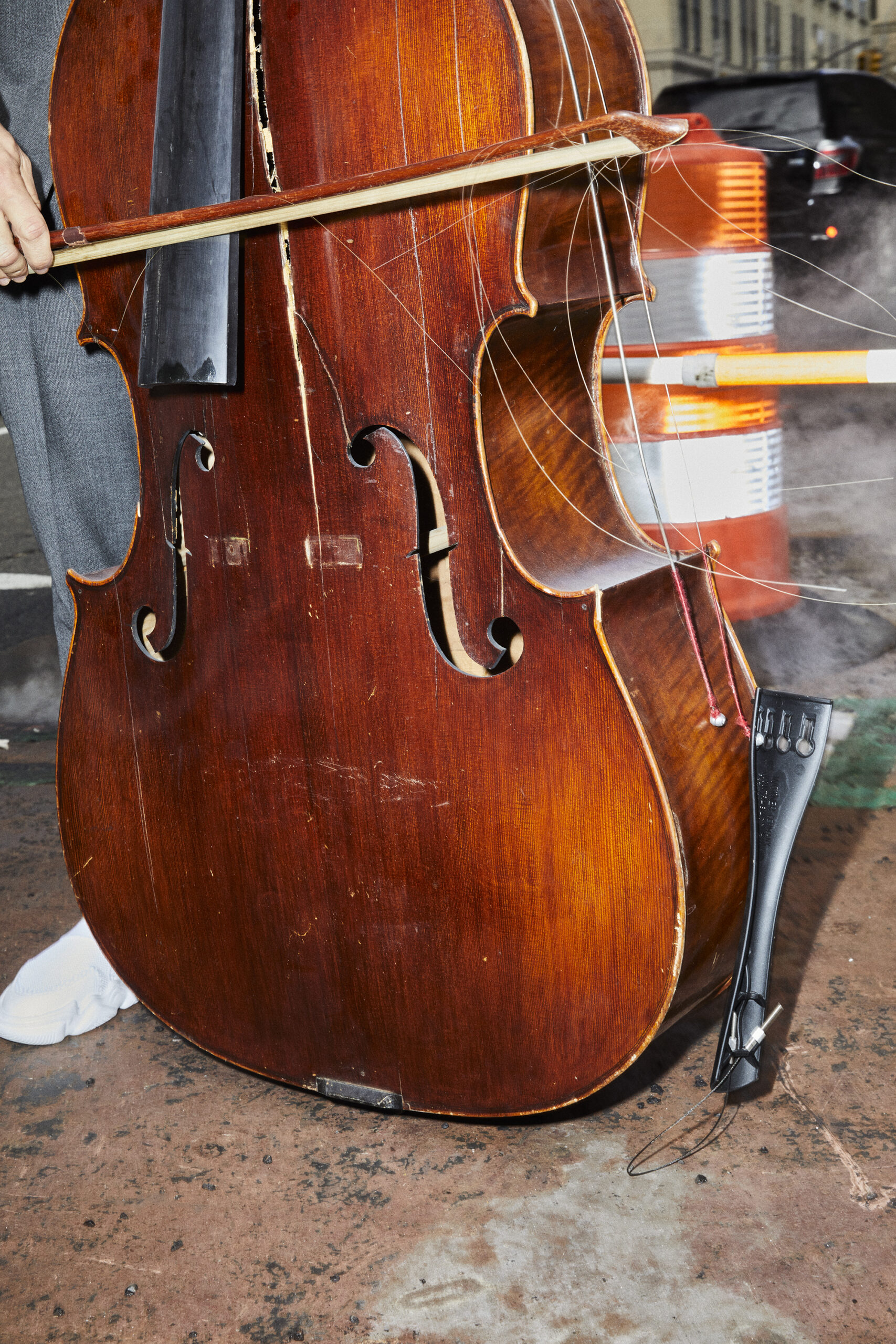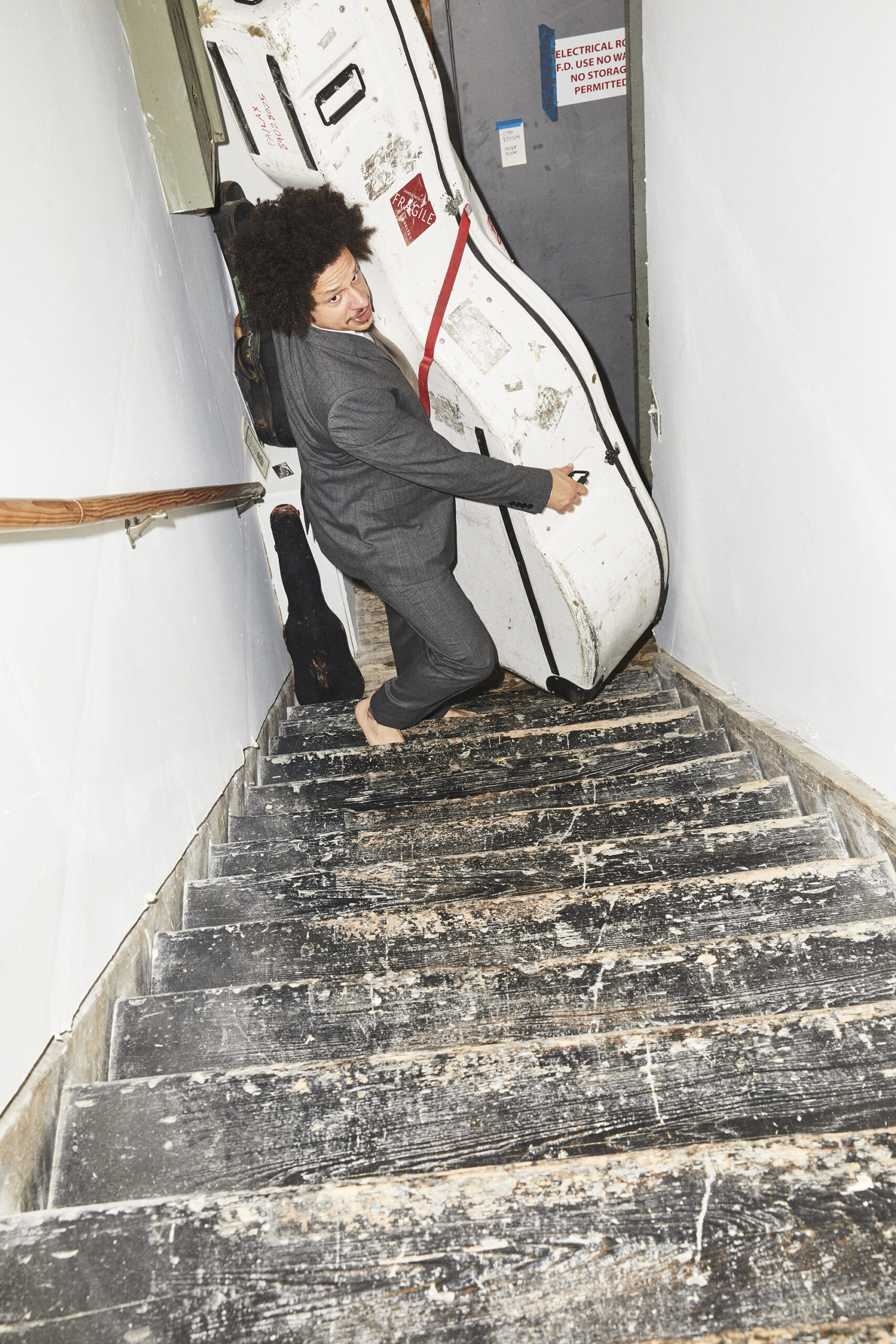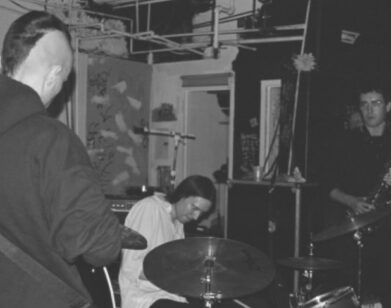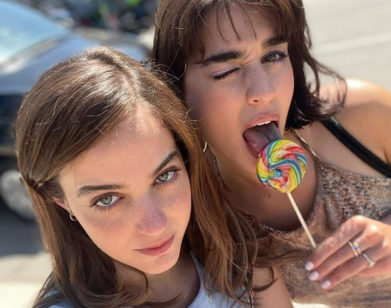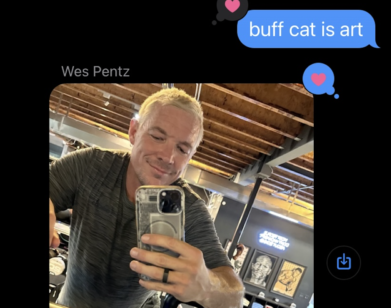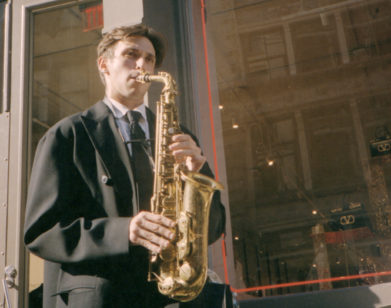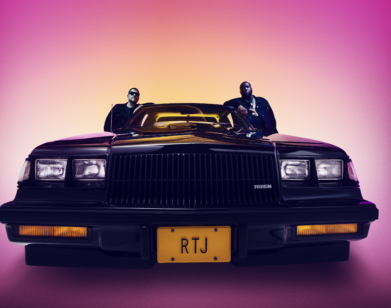LESSON
“Don’t Play It”: Eric André’s Tortured Relationship With the Upright Bass
Before Eric André was the comedy anarchist behind the boundary-evaporating sketch series The Eric André Show, or the Netflix hidden-camera freakout Bad Trip, he was just a kid blowing six figures on tuition at Berklee College of Music. An upright bass player since his teenage years, André gave up his dreams of anonymous gigs in jazz clubs to become one of the most outrageous comedians of his generation, and he’s not bitter about it at all.
———
BEN BARNA: I learned something about you that I feel like a lot of people didn’t know, which is that you used to play the upright bass.
ERIC ANDRÉ: Sure did.
BARNA: And that you were a major at Berklee College of Music before you went into comedy. What was the tuition on that—120 grand?
ANDRÉ: Yeah. Biggest mistake of my life.
BARNA: What were you aspiring to when you studied there?
ANDRÉ: Jazz, daddy-o. Living on the road with Dean Moriarty. No, nothing. I made a mistake when I was 18.
BARNA: When did you realize you made a mistake?
ANDRÉ: Pretty quickly. At one point I almost went back to Florida and joined a band, which would’ve been a fucking nightmare decision. My mom talked me out of that, thank god. I finished a four-year program in three years.
BARNA: You were a prodigy.
ANDRÉ: We’re talking Mozart. No, I would take classes over the summer, or whatever. It’s music school, man. Anybody can go. You can handcuff a chimpanzee to a saxophone and it’ll graduate with straight A’s.
BARNA: I saw a picture of you playing electric guitar in 1997. Why did you settle on the upright bass over that?
ANDRÉ: Guitar players are everywhere. They’re like gnats. Upright bass is more rare, and with scarcity comes more work. I also liked the way it looked. I don’t know, I was a teenager. I wasn’t really thinking.
BARNA: Do you have the same bass now that you had when you were younger?
ANDRÉ: No, I got a new one a couple of years ago that’s way better. Basses are very expensive.
BARNA: How much does it cost for a good one?
ANDRÉ: You’re going to want to spend at least 10,000 bucks. And that’s a cheap one.
BARNA: Are you still playing?
ANDRÉ: Barely. I’m not good at it. I was good when I was a teenager, but I had time to practice. It’s a fucking demanding instrument. It’s a pain in the ass.
BARNA: How did you get into Berklee? Was there an audition?
ANDRÉ: I think they just want your money. It had an 85 percent acceptance rate when I was there. You put yourself on tape, write an essay, and get letters of recommendation. But they don’t care. They just want to dupe teenagers into thinking they’re going to rock-n-roll school.
BARNA: Was comedy in the back of your mind when you were playing music?
ANDRÉ: Not at all. I was always a class clown, but I never thought of pursuing comedy as a career. I was very intimidated by even the idea of it. I had stage fright and anxiety. Then as I was finishing college, I was like, “Well, music is not the move for me, and the music I make is not good.” So I was like, “I’m not going to make any money doing this. This is a terrible idea.” Also, in Music History we studied this 20th-century composer Charles Ives, who said, “Never make money making music. You’ll always compromise your artistic integrity.” For some reason, that resonated with me.
BARNA: Can the bass be self-taught?
ANDRÉ: Maybe if you’re a genius savant, but you would benefit greatly from lessons. It’s not that intuitive. It’s very unique in its demands.
BARNA: Are you someone who names your instrument?
ANDRÉ: No. That’s a weirdo move. Maybe some people do, but I don’t play that much anymore.
BARNA: When do you play?
ANDRÉ: Every once in a while, I’ll go down there and get wistful and nostalgic and forge through some song I learned 20 years ago.
BARNA: Have you played it as a party trick?
ANDRÉ: Yeah, I’ve party-tricked it up. I don’t last very long. I wish I did. Some people are motherfuckers, they could pick it up after years of not touching it and just wail away.
BARNA: Are there finger exercises you do before playing to avoid cramping?
ANDRÉ: Yeah, it’s so annoying. You have to do your scales, do whole note exercises. There’s this obnoxious, old, boring book that’s so tedious called New Method for the Double Bass by F. Simandl. It’s like the bible for upright bass and the bane of every bass player’s existence. It’s very, very tedious and boring.
BARNA: Why did you buy a bass two years ago if you’re not really playing it that much?
ANDRÉ: It was a source of pride. I was like, “I finally can afford a bass that sounds good and isn’t a shitty piece of plywood.” And so I was like, “Fuck yeah. I’m buying a bass. That actually sounds fucking rad.”
BARNA: Were you playing your own instrument at Berklee or did they provide you with a good one?
ANDRÉ: They don’t provide you with shit. You pay for every fucking thing.
BARNA: When you’re playing it, is there a proper way to move? Are you moving your head or rocking back and forth?
ANDRÉ: I don’t know if you want to do head movements or rock back and forth. You can if you’re feeling it, but you want to be efficient and conserve all your energy for playing, so it’s not good technique. You want to take a deep breath before you play, you don’t want to be tense. It’s hard to stay relaxed, but that’s crucial if you can. You got to play the bass, you can’t let the bass play you.
BARNA: What’s the key to being good at bass?
ANDRÉ: It helps if you’re obsessive, because practicing is very tedious. It’s like doing taxes for hours. The warm-ups would be two or three hours long before I got to play the stuff that I actually cared about. I was like, “I don’t like this shit that much. This is fucking boring as shit.” And what’s the payoff ? I play at a wedding where nobody knows me.
BARNA: Did you ever try to incorporate it into your comedy routine?
ANDRÉ: I tried to bring it onstage when I started doing comedy, but I was so hyper and spastic that it didn’t match. It weighed me down, literally and figuratively.
BARNA: How did comedy appeal to you in a way that playing the bass didn’t?
ANDRÉ: Comedy doesn’t feel like work. Even when it’s tedious, I still feel like I’m building towards something. There’s times when I’m writing where I’m miserable, but it still feels like something comes out of it.
BARNA: Yeah.
ANDRÉ: It’s also easier to appreciate or dislike. People don’t have discerning tastes in upright bass playing. So you play a gig, but nobody’s paying attention, really. They don’t know how to judge it. But comedy, people know how to judge. So it feels higher stakes and more rewarding when it works.
BARNA: Do you have any other tips for playing the upright bass?
ANDRÉ: Don’t play it. Pick another instrument. Run for the fucking hills.
———
Grooming: Laila Hayani using Pattern Hair Care at Forward Artists
Makeup: Tee Chavez using Kiehl’s
Fashion Assistant: Keally Betanzos
Special Thanks: Finlay + Gage Musical Instruments

